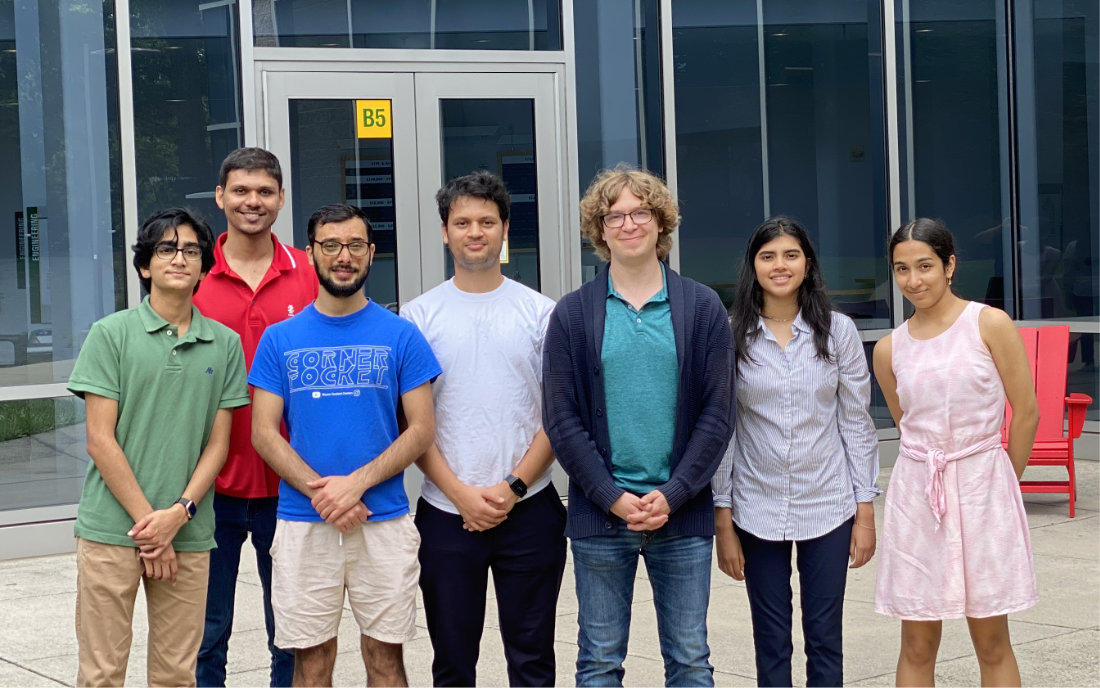Seek out Opportunities to Mentor
Summary: Mentoring others can be incredibly valuable experience and so opportunities to mentor should be sought out.
Each summer, my lab hosts a handful of high school summer interns through George Mason’s fantastic Aspiring Scientists Summer Internship Program (
Why Mentor?
PhD students often underestimate the need for experience beyond merely conducting experiments. Getting a PhD involves deeply understanding a topic and advancing the state of the field. As research does not happen in a vacuum, much of how that advancement happens is through engagement with others: formation of research ideas with your advisor and with colleagues or publicizing your work more broadly through blog posts or within the research community at conferences through talks, poster presentations, or informal conversations over meals. Being a successful researcher requires the ability to clearly communicate, distill complex ideas into core components, address (and ask) deep technical questions about those ideas, and identify through conversation where your listener might not be following along. To develop these skills, there is no substitute for experience.
Mentorship is an excellent source of practice for the intangible skills PhD students need. Teaching or training someone else requires good communication skills. Moreover, teaching complex ideas requires a deep level of understanding; trying to effectively explain concepts about which you have only a surface-level understanding will quickly reveal the boundary of your knowledge—to you, at least, if not the one you are trying to teach.
I often tell my students to be cautious of the sentiment that they ‘understand something but cannot put it into words.’ That ability to decode thoughts into prose is often a reflection of one’s level of understanding.
I often tell my students to be cautious of the sentiment that they ‘understand something but cannot put it into words.’ That ability to decode thoughts into prose is often a reflection of one’s level of understanding.
Beyond merely practicing communication, mentors will often learn through their mentees. Someone less experienced will come up with questions that even the most experienced mentors hadn’t considered. Through these questions, effective mentors seek opportunities to deepen their own understanding or hone in-progress ideas.
Onboarding my colleague Chris Bradley—now a long-time friend and collaborator—to our lab during graduate school helped refine our in-progress Learning over Subgoals Planning approach to learning-augmented planning under uncertainty, ideas now at the heart of my lab’s research.
Onboarding my colleague Chris Bradley—now a long-time friend and collaborator—to our lab during graduate school helped refine our in-progress Learning over Subgoals Planning approach to learning-augmented planning under uncertainty, ideas now at the heart of my lab’s research.
Finding Mentorship Opportunities
Mentorship takes many forms.
Structured mentorship opportunities during a PhD may involve guiding high school or undergraduate students through research, training new lab members, or even serving as a Teaching Assistant. However, many opportunities to mentor are informal, and include helping other students out with their experiments or chatting with them about their in-progress ideas over lunch or at a whiteboard. While many of these opportunities will organically arise—and a good PhD advisor will try to make sure these mentor/mentee relationships emerge—PhD students should seek out opportunities to mentor.
Research cannot be a solo exercise. I regularly tell my students to solicit feedback from other students, both inside and outside of my lab.
Research cannot be a solo exercise. I regularly tell my students to solicit feedback from other students, both inside and outside of my lab.
Some of the most valuable experiences during graduate school was in the informal mentorship relationships I undertook in my research lab and as communication coach through a peer-driven mentorship organization. Moreover, as a PhD student, mentoring under the supervision of your advisor provides you with a safety net: someone to reach out to when you’re not sure what guidance to provide.
Tell your PhD advisor or manager that you’re interested in mentoring others. Go out of your way to hear about your colleagues’ in-progress ideas at a white board or over lunch or coffee. You’ll be surprised at how it develops your skills as a researcher and deepens your professional relationships to those around you.
Questions or comments? Feel free to follow up on Twitter.


